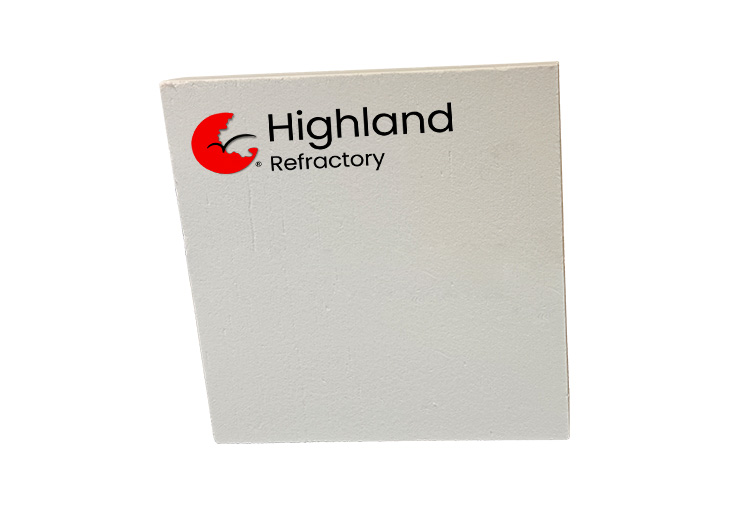
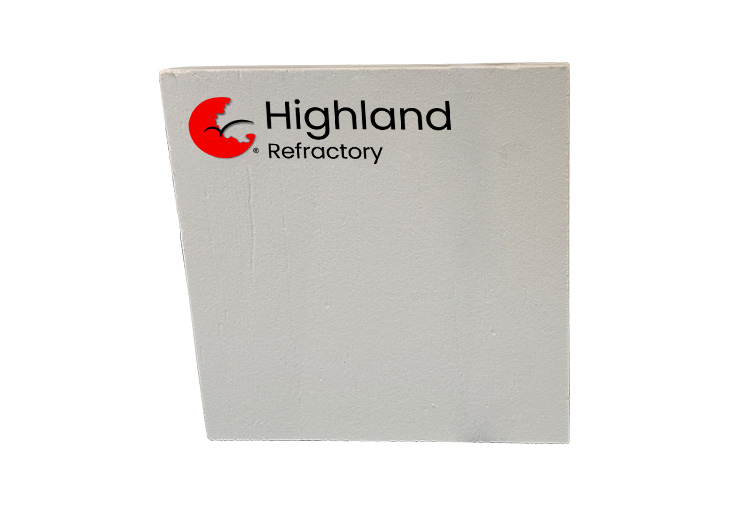
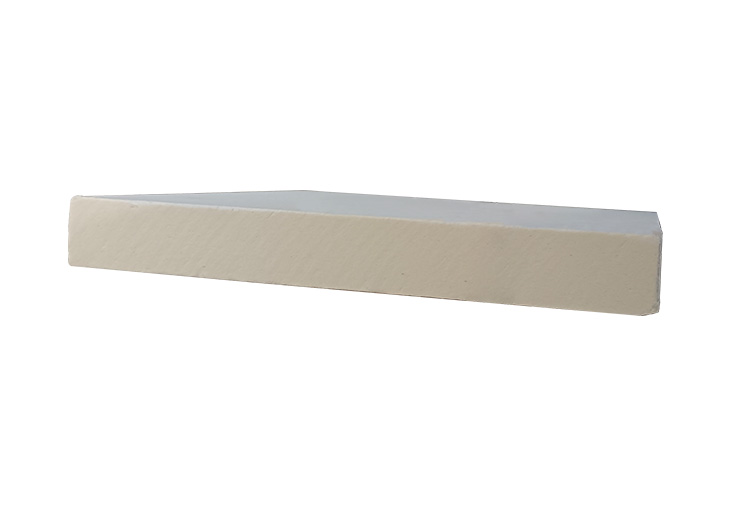



Ceramic fiber board is a new type of refractory insulation material.
It is mainly composed of ceramic fiber, binder and a small amount of additives, of which ceramic fiber is usually inorganic fiber material such as aluminum silicate fiber.
(1)Low thermal conductivity,
(2)Low heat capacity, excellent thermal stability
(3)High thermal shock resistance and compressive strength
(4)Good toughness
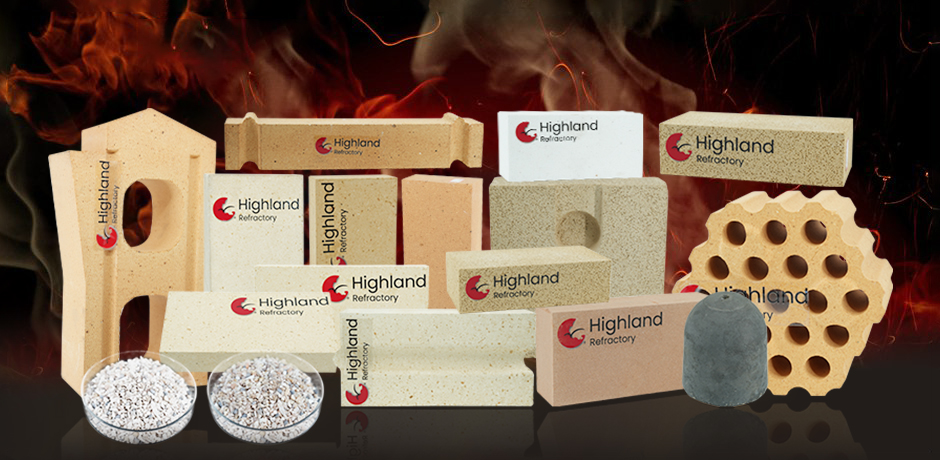
(1)Industrial kiln wall linings
(2)High temperature kiln linings
(3)High temperature and high heat equipment insulation
(4)Shipbuilding industry insulation and fire protection
(5)Sound insulation and insulation
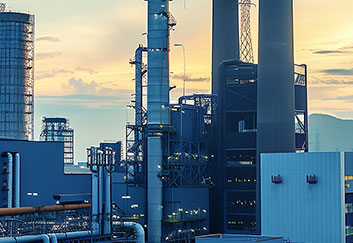
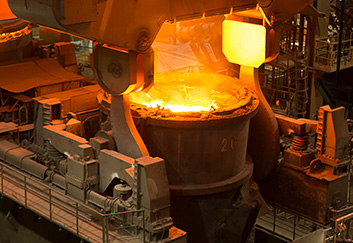
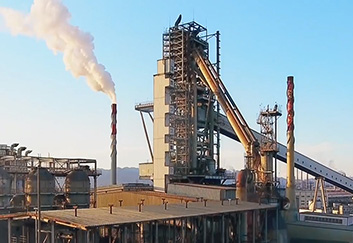
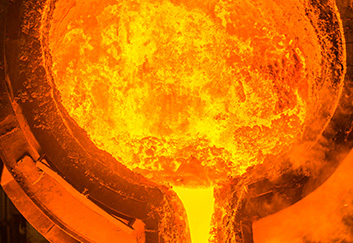
|
PROJECT |
INDEX |
|||
|
MODEL |
1260 |
1350 |
1450 |
|
|
Working Temperature(℃≥) |
1100 |
1250 |
1350 |
|
|
Density (kg/m3) |
220-500kg |
|||
|
Thermal conductivity by mean temp.( w/m.k ) |
0.085(W/m.k)(400℃) 0.132(W/m.k)((800℃) 0.180(W/m.k)((1000°C) |
|||
|
Compression strength(Mpa) |
0.5 |
|||
|
Chemical Composition(%) |
AL2O3 |
42~43 |
52~53 |
35 |
|
SIO2 |
53 |
46 |
45 |
|
|
ZrO2 |
- |
- |
15-17 |
|
|
Fe2O3 |
≤1.2 |
≤0.3 |
≤0.2 |
|
|
Na2O+k2O |
≤0.5 |
≤0.3 |
≤0.2 |
|
|
SIZE |
Length1200*Width600 |
Thickness20-30-40-50mm |
||
Highland Refractory classifies Ceramic Fiber Board based on temperature resistance and functional needs to fit diverse high-temperature scenarios. Standard Ceramic Fiber Board (for 1000–1260℃) is ideal for general industrial furnace insulation layers; High-Temperature Ceramic Fiber Board (withstanding up to 1430℃) suits boiler inner partitions and glass furnace components; Fire-Retardant Ceramic Fiber Board, with added flame-retardant additives, works for building fire barriers. Each Ceramic Fiber Board is made by pressing high-purity alumina-silica fibers into rigid sheets, ensuring shape retention even under prolonged high heat.
Highland’s Ceramic Fiber Board stands out with strong structural rigidity, maintaining its form without deformation in 1000–1430℃ environments—perfect for fixed insulation parts like furnace partitions. It has low thermal conductivity (≤0.13W/(m·K) at 800℃), cutting equipment heat loss by 30%, and its dense structure resists dust and moisture, extending service life to 3–5 years. Unlike flexible materials, it’s easy to cut into precise sizes for standardized equipment, simplifying installation and reducing on-site adjustments.
Ceramic Fiber Board is widely used in sectors needing rigid insulation: in metallurgy, it lines steel mill furnace partitions and ladle covers to separate high-temperature zones; in construction, it acts as fire barriers in industrial workshops and commercial buildings to stop fire spread; in petrochemicals, it wraps heat exchanger shells to stabilize temperatures and protect equipment; in automotive, it insulates exhaust system casings, where rigidity withstands vibration. Each use leverages its unique blend of rigidity and insulation.
Ceramic Fiber Board (Highland) excels in rigid, structural insulation, with high mechanical strength to support fixed components like furnace partitions or fire barriers—shape retention and load-bearing are its core strengths. Ceramic Fiber Blankets, by contrast, are flexible for wrapping curved surfaces or covering irregular areas. They serve distinct needs: Ceramic Fiber Board dominates rigid, standardized insulation tasks, while blankets lead in flexible, large-area coverage.
Highland Refractory, with 30+ years of refractory expertise, produces high-quality Ceramic Fiber Board. We use advanced pressing technology to ensure uniform density and consistent performance, with each batch tested for thermal conductivity, strength, and temperature resistance, meeting ISO 9001/CE standards. Our 60,000-ton annual capacity serves 1,500+ global clients, and we tailor Ceramic Fiber Board formulations (e.g., high-temp grades for boilers) to match specific customer requirements.
Choosing Highland Refractory for your Ceramic Fiber Board needs means customized solutions—we adjust temperature resistance, size, and thickness to fit your equipment (e.g., fire-retardant grades for buildings). We offer fast delivery (3–7 days for stock, 10–15 days for custom), bulk discounts (5–10% off orders ≥5 tons), free samples, and 24/7 technical guidance. This ensures your Ceramic Fiber Board integrates seamlessly into operations, delivering reliable insulation and long-term cost savings.

A: Certainly, we do provide free samples of our Ceramic Fiber Board. You'll just be responsible for covering the shipping expenses to your address. In the case of customized Ceramic Fiber Board samples with unique specifications like extra - high temperature resistance, a nominal charge may be applied, but it will be refunded if you place a significant order in the future.
A: For our standard stock Ceramic Fiber Board, delivery typically occurs within 4 - 6 business days. However, if you've ordered a customized Ceramic Fiber Board with special features or materials, it might take 8 - 12 business days. For large - volume orders, we'll collaborate with you to determine a suitable delivery timeline.
A: Our Ceramic Fiber Board is packaged to safeguard it during transit. Each board is first wrapped in a protective layer of foam to prevent scratches and minor impacts. Then, multiple boards are carefully stacked and placed in a robust wooden crate or a reinforced cardboard box, depending on the quantity. The packaging clearly displays handling instructions such as "Fragile" and "Do Not Stack Heavy Objects" along with all relevant product details.
A: We accept T/T (Telegraphic Transfer) as a common and reliable payment option. Additionally, we also support PayPal payments for your convenience, allowing for quick and secure online transactions. We are continuously exploring other payment alternatives to make the payment process even more seamless for our customers.
A: We apologize for any inconvenience caused by the damaged Ceramic Fiber Board. Please reach out to our customer service team promptly. Provide them with clear pictures of the damage and a detailed description. We'll immediately arrange to replace the damaged board with a new, undamaged one at no additional cost to you.
High alumina poly light brick is a high quality lightweight refractory material.
Low creep clay bricks have a low creep rate in high temperature environments and can maintain good shape and dimensional stability for a long time.
High alumina fine powder is a powder material with alumina (Al2O3) as the main component.
Refractory cement, also known as aluminate cement, is a fire-resistant hydraulic cementitious material.
High alumina fine powder is a powder material with alumina (Al2O3) as the main component.